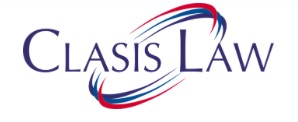29 June, 2019
The Hon'ble Supreme Court in the matter titled as G Ramesh v. Kanike Harish Kumar Ujwal & Anr., Criminal Appeal No.603 OF 2019, while dealing with the issue, whether there are sufficient averments in the complaint to meet the requirement of Section 141(1) of the Negotiable Instrument Act, 1881 (“NIA”) against the partners of the partnership firm, has also clarified that the expression “company” in the section 141 of NIA, undoubtedly includes a firm or association of persons. The judgment also clarifies that the expression “partnership firm” is covered under the expression “company” in Explanation (a) of section 141 of Negotiable Instrument Act.
Originally, a complaint under section 138 of the NIA was filed by the Appellant. The first Respondent was one of the accused in the Complaint and non-bailable warrants were issued against him. The first Respondent thereafter instituted a petition under section 482 of the Code of Criminal Procedure, 1908 (“CrPC”) before the High Court. The High Court after considering the allegations in the original complaint, quashed the proceedings vide its impugned order dated June 13, 2018, on the ground that the averments contained in the complaint are not sufficient to implicate criminal liability upon the first Respondent for on offence punishable under section 138 of the NIA.
Against the said order of the High Court, the Appellant came before the Hon'ble Supreme Court by filing a Special Leave Petition (“SLP”) under Article 136 of the Constitution. The SLP was admitted and converted to a criminal Appeal. In the said appeal, the Hon'ble Supreme Court while dealing with the issue “whether there are sufficient averments in the complaint to meet the requirement of Section 141 (1) of the NIA” opined “it is necessary to bear in mind the principle of law that a partnership is a compendious expression to denote the partners who comprise of the firm. By the deeming fiction in Explanation (a) the expression company is defined to include a firm.”
It further observed that for the High Court to quash the proceedings under section 482 of CrPC, it is necessary to establish that making the accused stand the trial would be an abuse of process of court and no offence can be made against him.
The Hon'ble Supreme Court relied upon the judgment of Gunmala Sales Private Limited vs Anu Mehta and Others, (2015) 1 SCC 103 which lays down general principles which apply to the present body of law. In the said judgment, the Hon'ble Supreme Court has held that:
“30. When a petition is filed for quashing the process, in a given case, on an overall reading of the complaint, the High Court may find that the basic averment is sufficient, that it makes out a case against the Director; that there is nothing to suggest that the substratum of the allegation against the Director is destroyed rendering the basic averment insufficient and that since offence is made out against him, his further role can be brought out in the trial……….”
The Hon'ble Supreme Court further observed that in the present case the complaint contains sufficient description of;
-
(i) the nature of the partnership.
-
(ii) the business which was being carried on;
-
(iii) theroleofeachoftheaccusedintheconductofthe
business and, specifically in relation to the transactions which took place with the complainant.
It was further pointed out by the Hon'ble Supreme Court that in the complaint the accused have been referred to in the plural sense and are sufficient to meet the requirement of Section 141 (1).
The Hon'ble Supreme Court has further clarified that Section 141 undoubtedly uses the expression “company” so as to include a firm or association of persons. In view thereof, the Hon'ble Supreme Court held that, “The fact that the first accused, in the present case, is a partnership firm of which the remaining two accused are partners has been missed by the High Court.”
Supreme Court further observed that the High Court misinterpreted in considering the partnership firm as a company and two accused as directors in it.
Accordingly, the Hon'ble Supreme Court allowed the appeal and set aside the impugned order of the High Court quashing the section 138 proceedings initiated against the first Respondent.
For further information, please contact:
Vineet Aneja, Partner, Clasis Law
vineet.aneja@clasislaw.com





